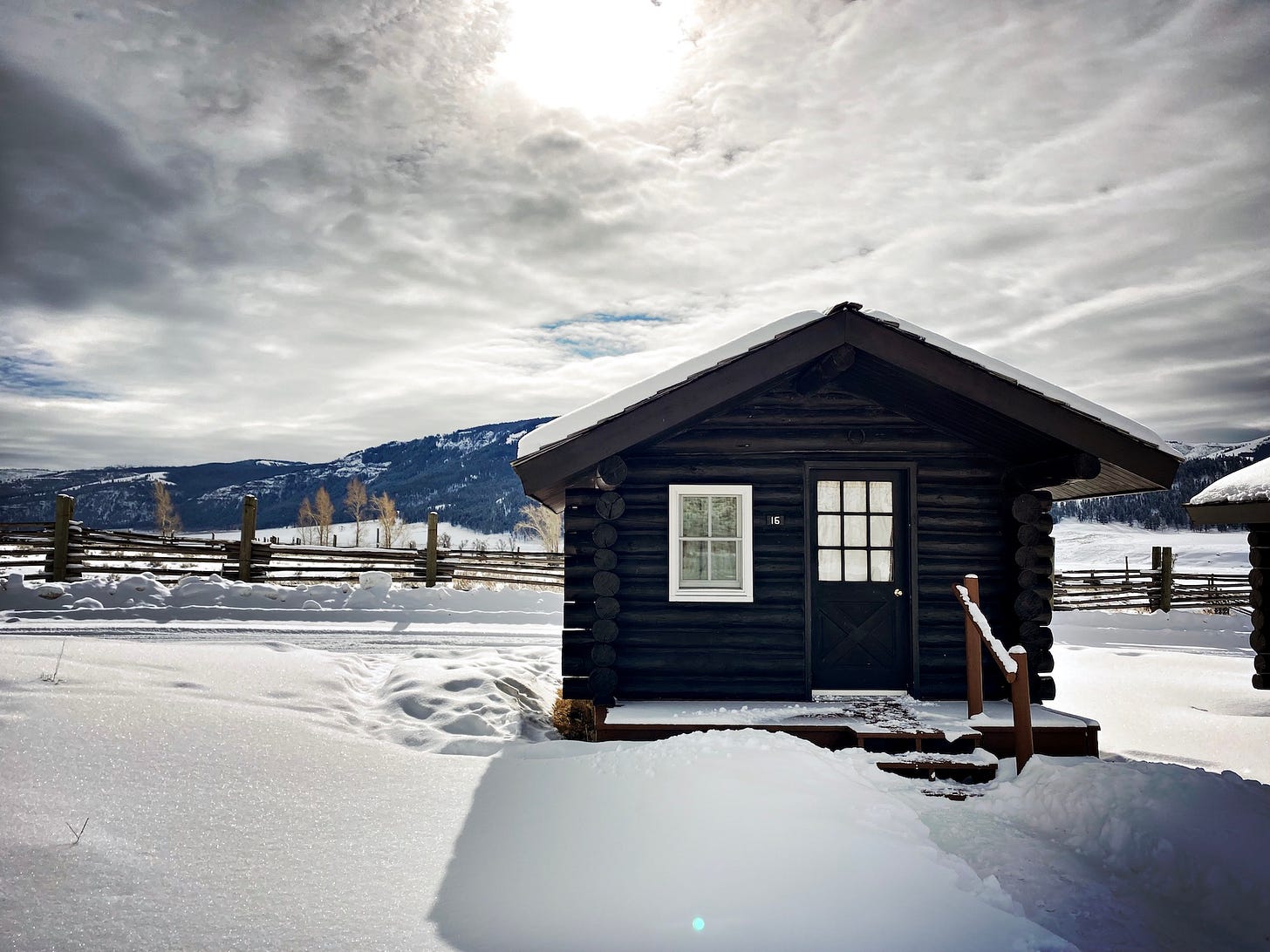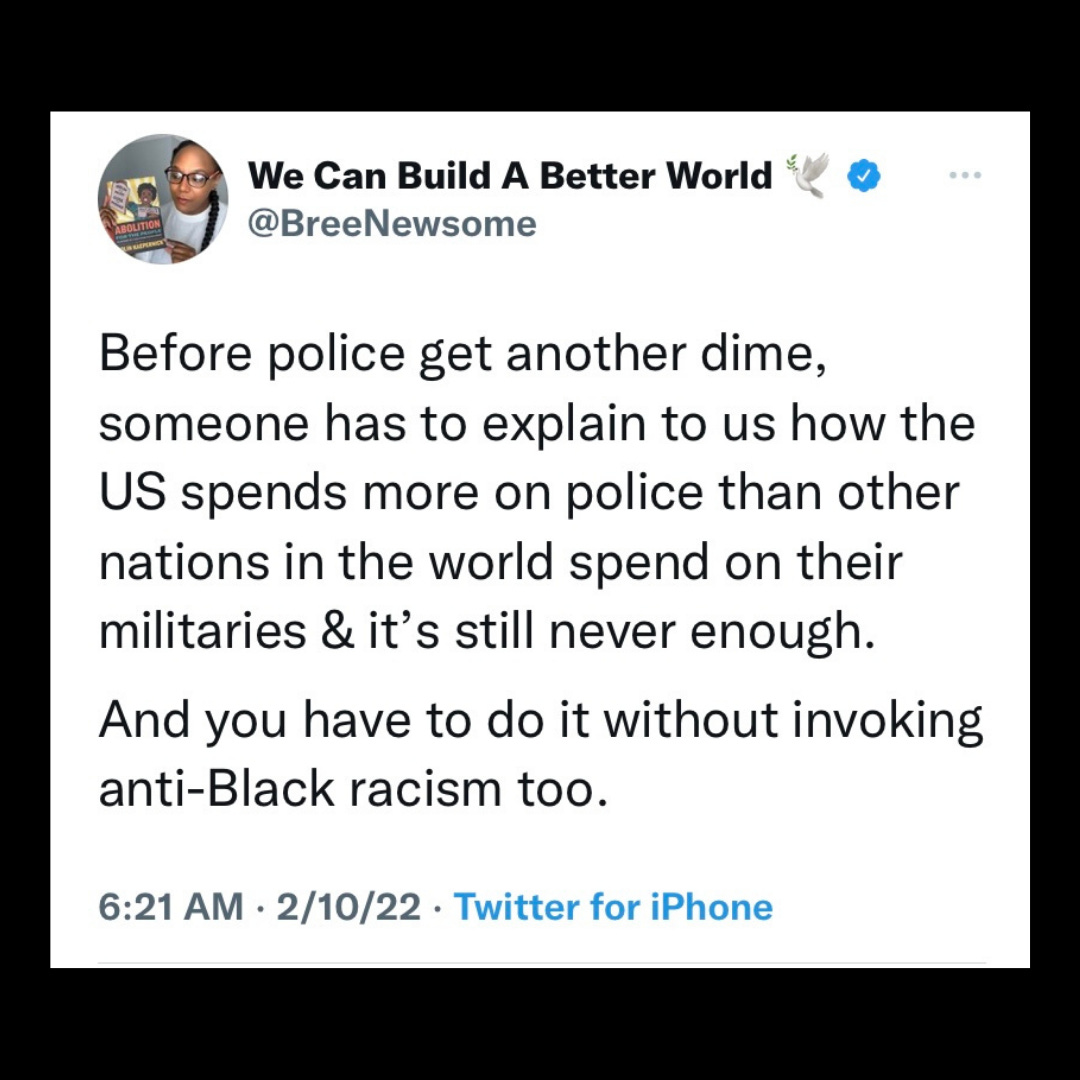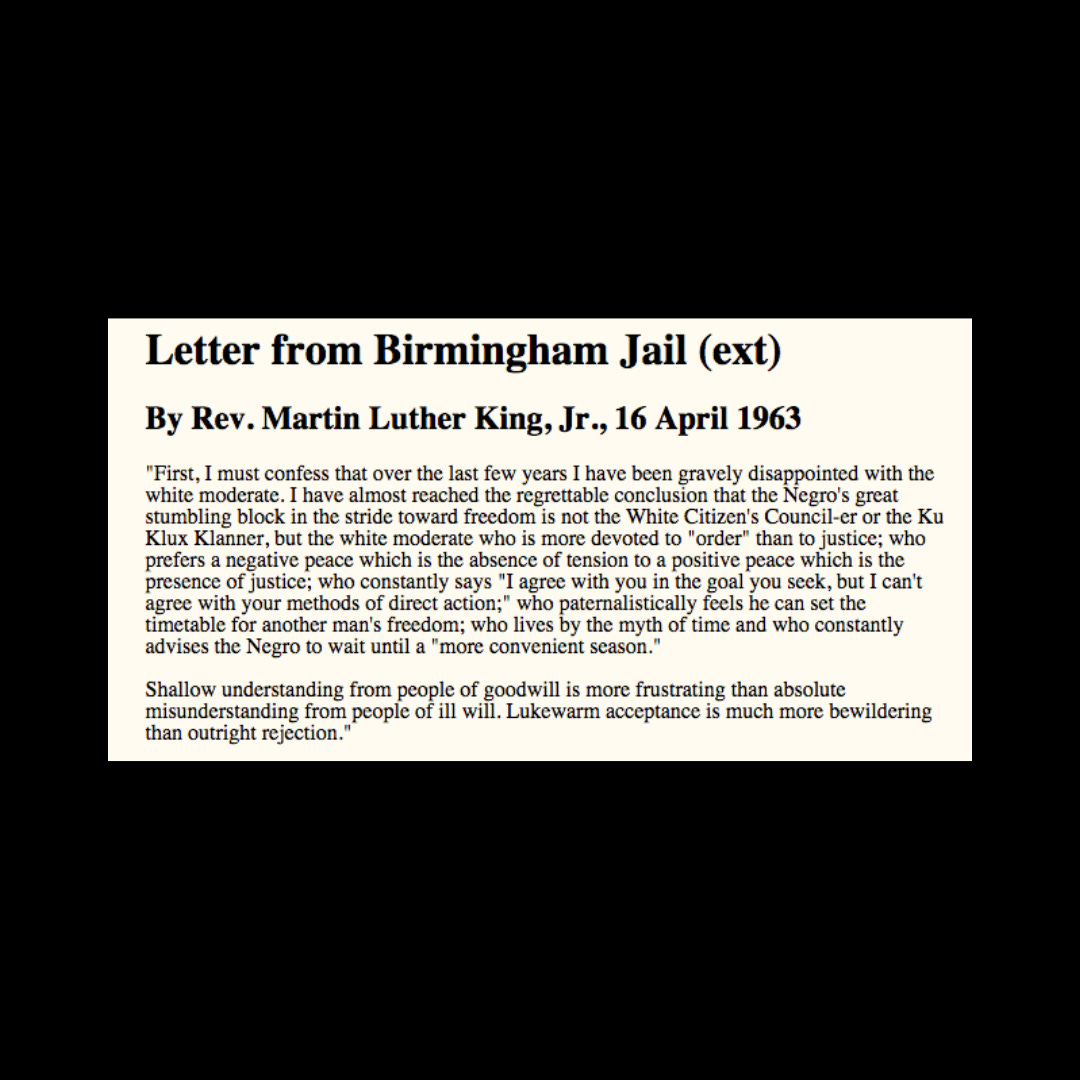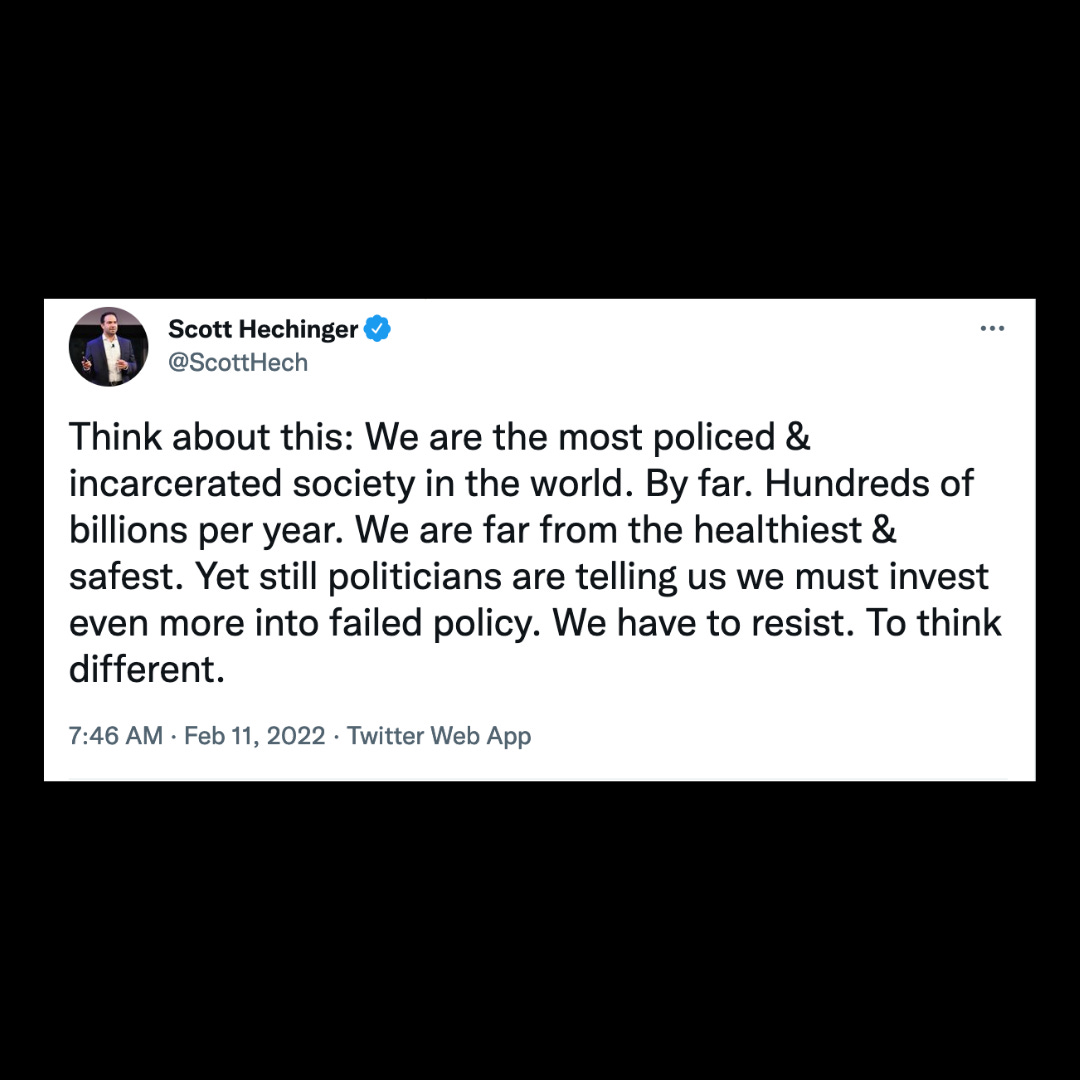Is it even possible not to live in a bubble? We largely choose the ones we prefer, but sometimes they are made for us by the circumstances life puts us in. Where we work, where we live, the people we have opportunity to spend time with, etc. Bubbles within bubbles within bubbles.
I was in the best kind of bubble in Yellowstone. Embraced by that wild place, with no cell service or wifi, in the company of people with similar ideas about the world. There was some conflict, but nothing that couldn’t be dealt with reasonably. Our interests overlapped far more than they clashed. We all cared about people and the world, agreed on the necessity of wildness and wild relatives. If only everyone could be so reasonable, so willing to engage peacefully with differences, then maybe everything wouldn’t be such a dumpster fire all the time.
[insert screech of phonograph needle dragged across a record]
I emerged from this wild bubble and was immediately faced with some harsh realities; for example, this: for all its smug self-assurance about being “progressive” and “democratic,” my community remains—with some few occasional and notable exceptions—a bastion of white supremacy that only cares about white people. The trigger for this realization was an article from the Missoulian that posted February 8th titled, “Missoula police training from controversial 'Killology' group approved.” It is an excellent example of speaking-truth-to-power journalism that serves a dual purpose by also exemplifying the critical nature of local, on-the-ground reporting. You can read the article HERE.1 The reporters Zoe Buchli and Jordan Hansen did a fantastic job.
I felt physically ill after reading the piece for lots of reasons. That working with a group that calls itself “Killology” wouldn’t make anyone in charge go, “Hmm, maybe we should look into this a little more.” That the guy doing the training “implies that sexual pleasure of police officers is amplified following a violent confrontation with a suspect” and, in a post last year about masks, said wearing them “can lead to increased rates in death and violence in the country” without, allegedly, any evidence to support the statement. Finally, I saw a screenshot of the all-white appearing city council just below where the piece reports that Council “voted unanimously among those in attendance to approve the claims sheet, which included the $7,780.09 charge. That includes 42 copies of the book ‘Bulletproof Mind.’”
I freaked out.
“This is an outrage. This is why I loathe Engen and the Missoula version of the Police Industrial Complex. This is why I think so little of “our cops aren't like that” Missoulians who have all the proper post-Floyd social justice books collecting dust on their shelves.” — Some guy’s twitter feed
The article quotes Missoula Mayor John Engen saying, “(The training was) about resilience and mental health for folks working in a tough profession, the training was professional and well-received by officers and those who took part in the training now have additional tools that allow them to be trusted, professional public servants.”
I’m all for training people. You can (allegedly) train ignorance. But it’s always good to be reminded that you can’t train stupid: “The rate of officer vaccinations lags significantly behind the rate of vaccination of the communities they serve. Many officers are filing lawsuits, quitting their jobs or applying for religious exemptions of avoid vaccinations. COVID-19 is now the leading cause of death among police officers. Since January 2020, 429 have died from it. The second-ranking cause of death, gunfire, killed only 92.”
So … I’m supposed to trust the judgment of a person with a gun and the license to kill me who can’t be trusted with the judgment to be community-minded in the face of a global pandemic? These are our “trusted, professional” public servants? Okay.2
Trust in judgment is a huge part of this story. The next day, the Missoulian published a follow-up called, “Missoula police, city officials agree not to hire controversial training group going forward.” You may read it HERE.3
After all the hubbub raised in the first piece, Engen is quoted saying, “In light of what we now know, we won’t be engaging Mr. Grossman or his associated company, Killology, again.”
The piece reports, “The [police] chief also met with command staff to establish protocol for vetting trainers prior to using them in the department, which wasn’t previously in place.”
Protocol for vetting trainers wasn’t previously in place?!
When asked why protocol for vetting potential police trainers was not already in place, the mayor said the city is a work in progress.
"Often we don’t develop policy or protocol unless there’s a catalytic event," he said. "This case was a problem we never anticipated and are now solving for it."
What might a catalytic event be? Could it be an officer killing someone in the street, for example?
How is it even possible that there isn’t already a protocol in place to vet people responsible for training city employees who have the authority to murder people? How is it possible that we are expected to trust the judgment of the people in charge—the mayor, his police chief—when such an important bit of common sense isn’t apparent before the need of a “catalytic event.” That might be the most asinine thing I’ve ever heard. I have to be vetted to even appear online to teach people in detention and I do my best to not even talk to cops, and yet trainers are not?
I’ve never liked cops. As the militarized arm of the state they are also the ones we most often come into contact with, and ever since my first dealings with them as a teenager I’ve found them to be consistently smug, arrogant, and rude. Not always, but often enough that I give them a wide birth because I expect the worst. Over the last few years as I’ve been drawn into the depths of studying a few hundred years of Indian policy and gained broader interest in related American history and efforts to attain social justice I’ve been even more invigorated to oppose the core of their foundation. Cops began in hatred and racism and misogyny and have never evolved past that. On the contrary; if anything they’ve doubled-down and yet receive more and more assistance toward their militarization every year by the public at large, even though there are millions of people in communities where fear and distrust of police is a constant toll of living in this country; people who have been trying to show the rest of us the state of this outrage for decades. We—white, cozy America, who don’t live with their reality—continue to ignore them.
“Every Black inmate, whether they were jay walking or breaking into a convenience store or driving a car, began the journey to incarceration by the actions of one or two or more men with guns. These gunmen had badges and totalitarian authority at the moment of encounter, and the Black person often ended up dead at the scene. Law enforcement boomed in the 1980s and ‘90s, consuming up to half of cities’ budgets. Police unions functioned as parallel agencies without any public scrutiny, successfully defending any of their members from punishment for murder or other abuse. Programs of reform, retraining, antibias training, and ethnic and racial diversification failed to change a police culture of anti-Black bias in the United States.” — Roxanne Dunbar-Ortiz, Not a Nation of Immigrants: Settler Colonialism, White Supremacy, and a History of Erasure and Exclusion
Police pretty much do whatever they want with what seems little-to-no accountability. A police conviction is so rare that when someone like that murderous Derek Chauvin actually goes to prison it seems like a revelation, and there is all this rhetoric about “justice being done.” But it’s not justice. It’s an anomoly. Justice is when this kind of thing—city budgets overloaded in favor of cops who murder people—is the exception, not the rule. Justice is the idea that no lives matter until Black lives matter. It is that simple.
Policing is the ultimate flex of white supremacy and it’s the one, like the endlessly expanding military budget, we seem least inclined to really do anything more about than occasionally grumble and shake our fists at.4 Most of us participate in its deadly expansion without even knowing it’s there because what does the average person know about police or who they serve? We swallow this line that they are an organization established to “protect and serve” us but that is not the case nor has it ever been.
Cops protect property, not people. And the original property they were after were Black people. There is no institution more deeply tied to racism and colonialism and domestic terrorism in the USA than the institution of policing. It all expands from there into the courts and the carceral system. It is a cruel, vicious system, and a culture that makes bad people out of good ones who immerse themselves in it. Before there were actual cops there was the KKK, for example. Is it any wonder there were so many cops among the rabid fascists who attacked the Capitol last year? Is it any wonder we are seeing cops plays handsies and footsies with those trucker dipshits in Canada right now, when we see the complete opposite when they engate with Indigenous people?
“By the turn of the twenty-first century, a carceral landscape spread across the continent, with federal, state, and local prisons in deindustrialized sites as well as chronically impoverished rural areas functioning as a jobs program. One out of every one hundred people in the US was behind bars, the total number over 2.3 million-172,000 in 102 federal prisons, 1,200,000 in 1,700 state prisons, and 680,000 in 3,200 local jails, plus 942 juvenile facilities and 79 Native American jails, plus immigration detention centers and military prisons. Some 150,000 more inmates were in privately owned and operated prisons. African American male inmates made up 37 percent of the male prison population, while Black males make up 6 percent of the US population. White males made up 32 percent of the prison population, exactly their percentage of the US white male population. Only Native Americans are incarcerated at a higher rate than African Americans, 38 percent higher than the national average [my emphasis].” — Roxanne Dunbar-Ortiz, Not a Nation of Immigrants: Settler Colonialism, White Supremacy, and a History of Erasure and Exclusion
A couple months ago I read at a celebration of a project called “Shape of Us” for an organization called Free Verse. My contribution to the project was last spring I taught four online workshops for incarcerated teenagers; two for the detention center in Missoula and two for the one called Pine Hills in Miles City. It was difficult, necessary work.
At the celebratory event, Free Verse executive director Nicole Gomez recited a number of carceral statistics similar to what I just quoted from the Dunbar-Ortiz book. I was very emotional when, immediately after, it was my turn to speak. These ballooning numbers are not a sign of how many criminals there are, but how terribly we’ve done as a society to care for one another. How blindly we’ve gone about our own lives while people—the usual suspects—get wealthier and wealthier off the suffering of other people, almost exclusively poor and brown people. The prison-industrial complex is real and utterly evil.
Still, statistics are meaningless without a personal story to attach to them. For me the stories are written across the faces I see in my teaching, multiple stories unfolding in the faces of 15–20 kids per class. The 4th and 5th graders, some of whom are certain to show up as faces in that Missoula detention center for petty offenses. And certainly some are going to end up in Pine Hills with longer sentences for more serious “crimes.” One can almost predict who it will be too, and it breaks my heart. We do so little to make the lives of people better (our federal military budget is just a skosh under half of the entire U.S. budget) and it is unconscionable. We are our own crime against humanity through our inaction.
This, the history of police and incarceration, is part of American history that so many people are being duped into believing shouldn’t be taught. City and state governments all over the country are doing their very best to make sure we are kept ignorant. It is happening in Montana too, right out in the open. Our city governments’ continued efforts to shovel money at cops is a sign of that. It is all connected and we must fight against it.
“Police in the United States kill civilians at a far higher rate than any other wealthy country: per ten million people, US police kill 35.5 individuals while Canadian police, which have a negative reputation for violence and targeting among Native people, kill 9.8 individuals per ten million. Australian police kill 8.5 per ten million; the Netherlands, 2.3; New Zealand, 2.0; Germany, 2.3; the United Kingdom, 0.5; Japan, 0.2; Iceland and Norway, zero.” — Roxanne Dunbar-Ortiz, Not a Nation of Immigrants: Settler Colonialism, White Supremacy, and a History of Erasure and Exclusion5
I said earlier that my community is a bastion of white supremacy that only cares about white people. It’s not entirely willful either. It’s ignorance, and ignorance isn’t necessarily a bad thing. Most people in my community can’t imagine cops are violent and murderous because they almost never have to face that violence and murder themselves. Going along with the status quo, accepting budgets at face value, are all part of the maintenance of this lethal, white supremacist culture. You can claim allyship and fly signs and posters but without really digging into what any of that really means, how we’ve arrived here, you can remain utterly culpable without even realizing it.
This latest incident hit me hard and was a serious blow to my desire to participate at all in the legislative process to make any kind of change. It feels like an exercise in futility, at least here in Montana, an overwhelmingly white state, or here in Missoula, an overwhelmingly white city. In Missoula you will see Black Lives Matter signs all over, rainbow flags, all of it. We have organizations like Soft Landing Missoula who do great, important work. Countless nonprofit organizations are based here, particularly conservation organizations. But the truth is every single one needs to be decolonized as much as anything anywhere else does. We can’t be what Soft Landing aims to be, a “welcoming, supportive and informed community that can assist refugees and immigrants to integrate and thrive” without a lot of deep, difficult work at the infrastructure level of how we function as a community.
Earlier this year I wrote a piece where I asked people if they ever want to leave the place they live. There were excellent comments and I received a bunch of personal emails. Here is an excerpt from a note I received from one of my best friends, who begins by speaking with favor of where she lives, and then continues:
But it's the most homogenous place demographically I have ever known. We are so white that it becomes almost a surprise to see a brown face. We are old and wealthy (well, not me, but I am not the norm). It is a town of self-righteousness (of the liberal kind), a town of Karens, a town of privileged and entitled people who put up signs in their yard about love and justice, but who don't do much to change the circumstances that cause the injustices ... Everytime I go to the city now, to what once was my city, I am overwhelmed by the sensory overload of it, but also delighted to hear people speaking something other than English. To see brown faces, to see women in burkas or saris, to know that not everyone there is a middle-aged white liberal person. I want to hang out with people who aren't exactly like myself.
The danger, she tells me, is in becoming that person herself. That she feels guilty being so judgmental toward her community when she all too often falls into the same trap, exists in that same bubble. I feel exactly the same way, which is probably why I get so irate. Not just at the world, but at myself for continuing to be part of it. Bubbles are smothering! I really don’t know what the answer is, but the question often leaves me miserable and full of despair because I don’t have face-to-face access to anyone I believe really care. It is why I dream of moving somewhere else where I can engage in efforts with people motivated to make change because their lives depend on it.
When I interviewed Senator Jon Tester last year for AHP it was just after the insurrection of January 6th. The Montana Democratic Party had also just received a vigorous drubbing in the November elections. In Tester’s opinion, the “defund the police” rhetoric was part of why they were so completely crushed. But that’s no reason to back away from it. There are a lot of people—more than half of white men and white women, in fact—who remain committed to voting for racist and fascist candidates. That isn’t going away. We aren’t going to solve it sitting in front of our computers e-signing petitions and sharing the latest quote or news item inside our social media bubbles either.
I’m going to quote my guy Dr. Martin Shaw; he was talking about something else, but it fits here too. “None of what I write is remotely intended to scold,” he says, “but to stir and emphatically encourage. Some of it may irritate, but I’m hoping it’s a useful bone to chew on.”
I don’t believe Mayor Engen or his police chief understand any of this. I don’t think the Missoula democratic elite, the people in fancy houses who throw parties for political candidates and seem to fall all over themselves for Engen, understand any of this. I don’t think the majority of political elites anywhere understand this, because to do so would put to question the foundation for everything that feeds their bank accounts.
But we have to do something. It is a life or death situation.
If you are local and can’t access the article, I urge you to consider subscribing, even just to the digital version. If you aren’t local, can’t access the article, and aren’t particularly interested in subscribing to my local paper, I get it; I made a PDF you can see HERE
The article notes that at least one city councilperson protested the $8K bill for the training. He explained to me later that not voting for the claims sheet would have meant 700+ city employees also would not have gotten paid. I asked him how the hell it could be possible to not be able to approve parts of a claims sheet while setting aside others for further discussion? He said he was told later that it is possible, but he hadn’t raised the issue soon enough; he promised he’d find out what the proper protocol is. He also told me that he was chastised by a senior councilperson for bringing the issue up at all, that it should have been “handled internally.” The entire thing reeks.
For the record, Biden increased both police funding and the military budget
I’m leaning hard on the Dunbar-Ortiz book for this because I’m currently reading it. It is one of MANY excellent books about all this stuff and I wish more people would read them and make their truth part of a daily practice of being a human being







The only thing that irritates is how intractable it all feels. Humanity has changed bigger, more difficult, more entrenched systems before; the frustration I feel is in not seeing where to start with this one. But I bet there are models out there, even for places like ours. Thank you for once again laying it all out so clearly!
Did you see that the city also agreed to move the Crisis Intervention Team from Missoula Fire Department to Missoula Police "given Missoula's reliance on trained law enforcement officers to respond to calls involving a mental health crisis." Does anyone in the city really think people join the police because they want to be empathetic social workers and actively work to defuse and deescalate complicated problems of substances abuse, mental illness and poverty? Police are simply agents of the state hired to enforce the criminalization of poverty - a perpetual, recurring feature of capitalism.